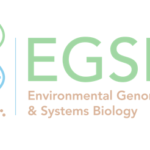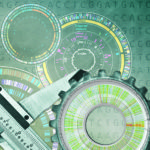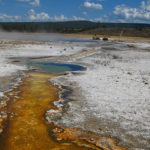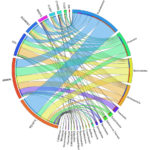N. Louise Glass, director of the Environmental Genomics & Systems Biology (EGSB) Division, announced new leadership as of October 1, 2018. Changes were implemented to diversify perspectives and ideas within the management of the Division. Ben Brown and Henrik Scheller have agreed to take on positions as Division co-deputies for science; Tanja Woyke and Chris Mungall will now serve as department heads of Functional Genomics and Molecular Ecosystems Biology, respectively.
DOE JGI Helps Define Standards for Genomes from Uncultivated Microorganisms
More than a century after the Industrial Revolution, advances in DNA sequencing technologies have caused similarly dramatic shifts in scientific research, and one aspect is studying the planet’s biodiversity. One critical term that needs standardization is “metadata,” defined simply as “data about other data.” In Nature Biotechnology, an international team led by DOE JGI researchers has developed standards for the minimum metadata to be supplied with single amplified genomes (SAGs) and metagenome-assembled genomes (MAGs) submitted to public databases. Read more on the DOE JGI website.
DOE JGI Helps Develop New Technology to Access Microbial Dark Matter
Miniaturized, microfluidic-based metagenomics technology developed under the aegis of U.S. Department of Energy Joint Genome Institute’s (DOE JGI’s) Emerging Technology Opportunity Program (ETOP) has enabled researchers to shine a light on so-called microbial “dark matter”—the majority of the planet’s microbial diversity that remains uncultivated. Researchers from Stanford University demonstrated the efficacy of the new technique, extracting 29 novel microbial genomes from Yellowstone hot spring samples while still preserving single-cell resolution to enable accurate analysis of genome function and abundance. Read more in this JGI Science Highlight.
JGI Researchers Release 1000+ Microbial Reference Genomes
Department of Energy Joint Genome Institute (DOE JGI) and Biosciences Environmental Genomics and Systems Biology (EGSB) division researchers have released 1,003 reference genomes for diverse bacteria and archea isolated from environments ranging from sea water and soil, to plants, and to cow rumen and termite guts. The release is the largest to date from JGI’s Genomic Encyclopedia of Bacteria and Archaea (GEBA) initiative, which seeks to fill in unexplored branches of the tree of microbial life. JGI’s Supratim Mukherjee and Rekha Seshadri were co-first authors on the paper published in Nature Biotechnology; senior author Nikos Kyrpides and co-authors Natalia Ivanova, Axel Visel, Tanja Woyke, and Yasuo Yoshikuni have secondary affiliations with EGSB. The genomes are publicly available through the Integrated Microbial Genomes with Microbiomes (IMG/M) system. Read more on the JGI website.
JGI’s Woyke quoted on The ‘Dark Matter’ of the Microbial World
A study of gut microbiomes finds that a common DNA sequencing technique overlooks 90 percent of the diversity in archaea, which are single-celled microbes more closely related to humans than bacteria. Archaea are difficult to study, so not much is known about the organisms. This can lead to bias in the archaea knowledge base, says the Joint Genome Institute’s Tanja Woyke, who was quoted in this recent article in The Atlantic.
Was this page useful?








